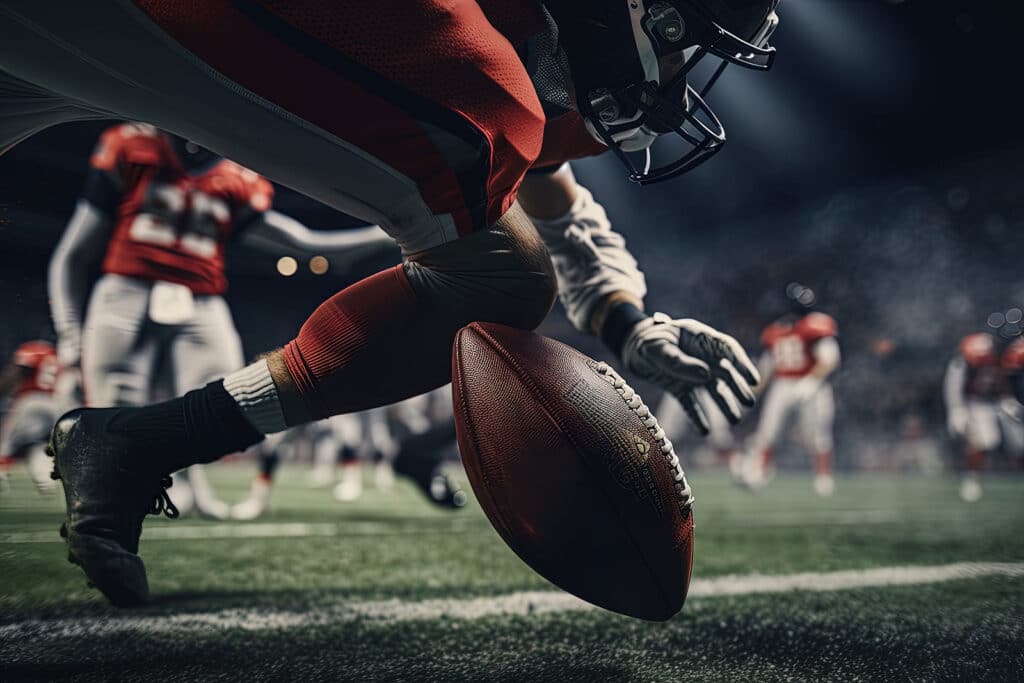Sometimes, you just want to have a drink – maybe because you’re too stressed, or you just want to have some fun with your friends or family although you have a concussion, is it safe to do so?
Also, did you know that concussion is actually common in the U.S.?
According to the University of Michigan Health’s study, concussions are common among athletes. They discovered that some 3.8 million Americans suffer a concussion due to a sports-related injury yearly.
Another study published by the Centers for Disease Control and Prevention (CDC) notes an estimated 5% to 10% of athletes experienced a concussion in their lifetime.
Following these published researches, the main reason why you’re here is to look for some answers – so, can you drink alcohol with a concussion tho?
To answer this question, researchers found that drinking with a concussion could severely impair brain injury recovery, but how come? You might be curious now about the effects of alcohol on your brain functions.Before, getting into that phase, you need to understand better what a concussion is, how a mere head injury affects someone’s life, especially your loved ones, and how it could cause brain damage for anyone who’s a concussion patient – you should read this article.

Table of Contents
- What Is a Concussion?
- Treatments and Recovery: What Athletes and Everyday People Should Know About Healing After Suffering a Concussion
- The Relationship Between Alcohol and Concussions
- What Alcohol Does to the Brain of Someone Recovering From a Concussion
- The CDC and the Model Systems Knowledge Translation Center Discuss the Dangers of Consuming Alcohol While Recovering From a Concussion
- Reverse Alcohol Tolerance and Concussions
What Is a Concussion?
For those unfamiliar with the term, a concussion is a traumatic brain injury (TBI) commonly brought on by a jolt, blow, or bump to the head. It can also result from a hit to the body that causes a rapid back-and-forth motion of the head and the brain is. While common across numerous sports, concussions are most common among football players.
A study published by the University of Pittsburg Medical Center said that around 300,000 of the roughly 3.8 million concussions reported yearly involve football players. That said, concussions are severe injuries that require immediate medical evaluation, treatment, or both.
Multiple studies show untreated concussions can trigger chemical changes in the brain and even damage brain cells.
Common concussion symptoms include the following:
- A chronic headache
- Asymmetrical pupils
- Difficulty waking up
- Drowsiness
- Loss of consciousness
- Noticeable changes in behavior
- Poor coordination
- Seizures
- Severe nausea and vomiting
- Slurred speech
- Weakness or numbness
- Confusion or memory loss problem
- Headache, migraines, or pressure in the head
Treatments and Recovery: What Athletes and Everyday People Should Know About Healing After Suffering a Concussion
Whether symptoms are mild or nonexistent, it is always a good idea to be seen by a physician after suffering a concussion or any mild traumatic brain injury. And this could be a primary care physician, neurologist, neurosurgeon, or neuropsychologist.
Being evaluated by one of these healthcare professionals can help identify or rule out other problems that sometimes go hand in hand with concussions, including hematomas, early-stage Parkinson’s disease, and a fractured skull.
If a medical professional can rule out these severe complications, most will advise individuals to take over-the-counter pain relievers as needed and to report unusual symptoms or symptoms that persist for too long. They will also cover the three phases of the natural concussion recovery process and explain to individuals what they can expect as they go through each one. Those phases include the following:
- Acute symptomatic phase
- Recovery phase
- Recovered phase
The Relationship Between Alcohol and Concussions
Considering that in every 1 in 8 people in the U.S. have an alcohol use disorder (AUD), it stands to reason that some of these same individuals might be recovering from a concussion. Like football, individuals who drink alcohol excessively have a greater chance of suffering a concussion or another head injury. In a study published by the National Institutes of Health, researchers revealed a substantial proportion of traumatic brain injuries occur when individuals are intoxicated. For this reason, most rehab facilities warn individuals going through an alcohol addiction recovery program of what a return to drinking can do to their psychological health if they haven’t fully recovered from a concussion. In addition to admonishments, many also provide helpful tips for speeding up concussion recovery, some of which include the following:
- Getting plenty of sleep
- Staying hydrated
- Consuming a healthy, well-balanced diet
- Not consuming alcohol
- Avoiding physical and mental overexertion
What Alcohol Does to the Brain of Someone Recovering From a Concussion
Available data shows it takes, on average, 1 to 2 weeks for most people to get through the three phases of concussion recovery. In a study published by the Brain Injury Association of America, a national health organization dedicated to brain injury prevention, research, education, and advocacy, researchers found that drinking during this time severely impairs brain injury recovery. It also negatively impacts cognition, namely when it comes to concentration, problem-solving abilities, memory, and learning, and worsening depressive symptoms or any other pre-existing mental health problems, as the study further revealed. Other studies on concussion recovery and alcohol consumption revealed similar findings, one of which is from MedlinePlus. In that study, researchers note that alcohol can slow down the time it would otherwise take to heal from a concussion. And it doesn’t end there; the same MedlinePlus study notes alcohol puts individuals at greater risk of sustaining other injuries. It also hampers their decision-making abilities.

The CDC and the Model Systems Knowledge Translation Center Discuss the Dangers of Consuming Alcohol While Recovering From a Concussion
For those unfamiliar with the Model Systems Knowledge Translation Center (MSKTC), it is a resource and information clearinghouse for patients and caregivers run by the American Institutes for Research, one of the world’s largest behavioral and social science research organizations. The organization echoes the sentiments of MedlinePlus and the Brain Injury Association of America; it, too, finds that alcohol worsens the effects of a concussion and slows down the time it takes to heal from one. But it does not stop there; the MSKTC notes that these traumatic brain injuries can put individuals at risk of seizures, which can have some long-term consequences. Some of the more notable of these include losses in visual memory, attention, problem-solving, and perception. Lastly, a CDC study notes that alcohol slows concussion recovery while increasing an individual’s chances of suffering additional head and other bodily injuries.
Reverse Alcohol Tolerance and Concussions
One of the reasons why individuals who haven’t fully recovered from a concussion are at risk of suffering more injuries is reverse alcohol tolerance. For those unfamiliar with it, reverse alcohol tolerance refers to the liver’s inability to produce the enzymes necessary to break down alcohol in an individual’s body. In addition to causing individuals to feel intoxicated after consuming only a few drinks, which leads to issues maintaining balance, reverse alcohol tolerance severely damages the liver. And that opens the door to even more health problems. When someone consumes alcohol, the liver slowly filters it out of the body. And this is why individuals no longer feel inebriated several hours after they’ve stopped drinking. But this filtering process destroys cells in the liver; the more those cells get destroyed, the more likely it is for liver and other health problems to follow, some of which, according to the Mayo Clinic, include the following:
- Alcohol use disorder
- An irregular heartbeat
- Breast cancer
- Cirrhosis and liver cancer
- Heart disease
- Hypertension and stroke
- Oral and upper digestive tract cancers
In summary, one could, in theory, consume alcohol while recovering from a concussion. However, several negative consequences can arise from doing so, some of which are far-reaching. Ideally, it is best to wait for the 1 to 2 weeks it typically takes to recover from a concussion before imbibing. Of course, if someone has an alcohol use disorder that makes it difficult to abstain from alcohol, they’re encouraged to speak with an Illinois Recovery Center associate. These compassionate and knowledgeable associates can recommend an appropriate alcohol addiction recovery program that can help them conquer addiction so that they can heal psychologically and physically.
FAQ
Is it safe to drink alcohol after a concussion?
How does alcohol affect the brain after a concussion?
Can alcohol consumption increase the risk of a second concussion?
What are the potential consequences of drinking alcohol with a concussion?
Can alcohol consumption affect post-concussion syndrome?
How can I support a friend or family member who has suffered a concussion?
Published on: 2024-03-27
Updated on: 2024-07-12



